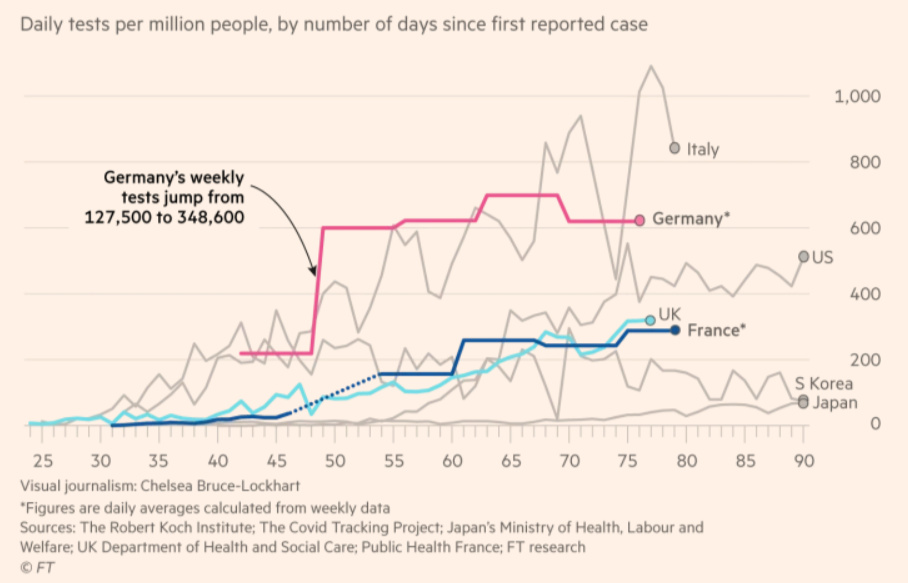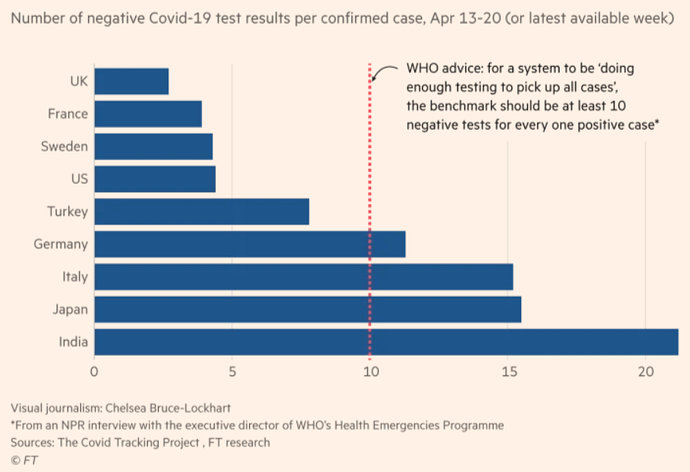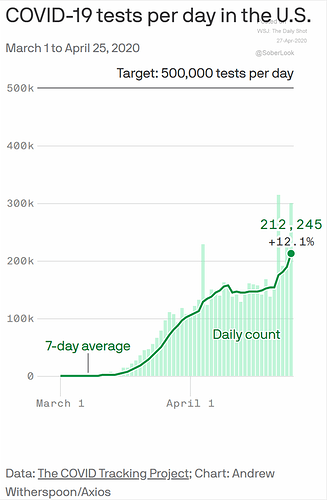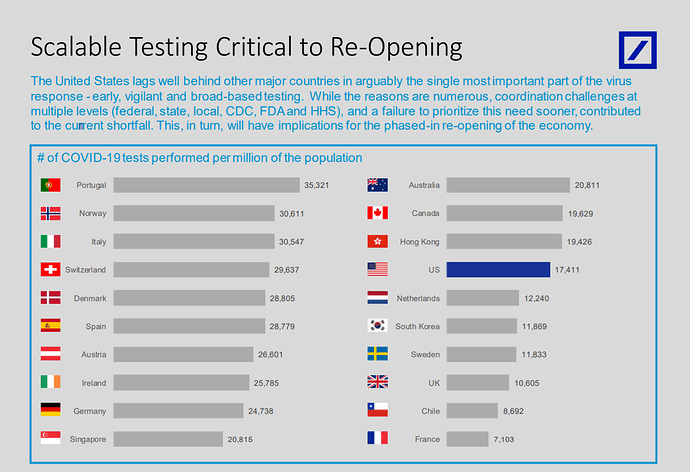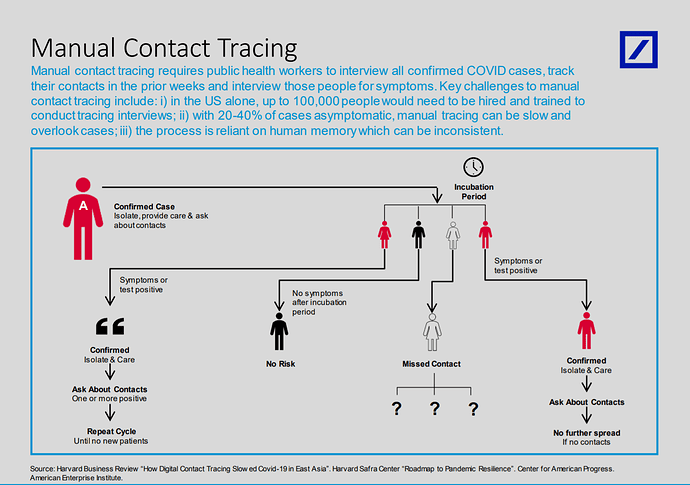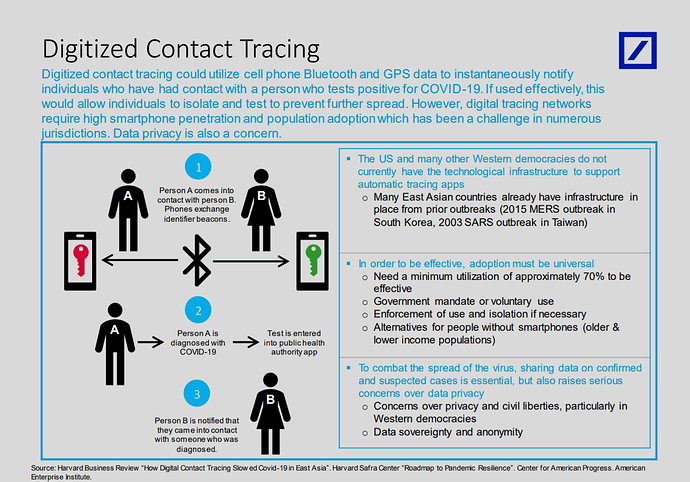Testing should be running closer to 500k per day, not 150k.
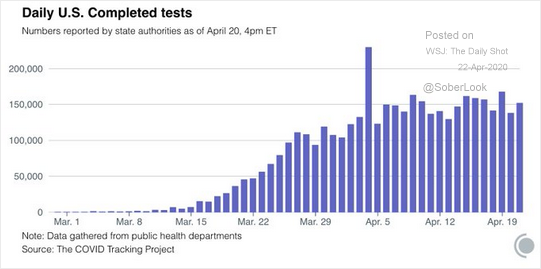
As far as I know russians have a lot of infected too
about 6-7 thousands of infected at each day
Just feel theres so much importance in testing when really what’s the point? People who are +ve still need food supplies. who’s going to get it for them? It’s only good to get front line staff back to work. You can be -ve and still be +ve in a few days. If you’re -ve you can still catch it from someone who isnt showing symptoms yet. Even if you’re +ve, who’s going to put food in the table for your, who’s paying the bills. People who are self employed who work week to week still need to work. The government are too slow to provide economic support for people who need it and not enough protective equipment.
It’s such a waste of money. Either test everyone or protect everyone. Trying to o both means you’re not doing either properly. Everyone is worried about the numbers tested. Its deflecting everyones focus.
More challenges on testing…
Coronavirus Antibody Tests: Can You Trust the Results?
A team of scientists worked around the clock to evaluate 14 antibody tests. A few worked as advertised. Most did not.
The researchers worked around the clock, in shifts of three to five hours, hoping to stave off weariness and keep their minds sharp for the delicate task.
They set up lines of laboratory volunteers: medical residents, postdoctoral students, even experienced veterans of science, each handling a specific task. They checked and rechecked their data, as if the world were depending on it. Because in some ways, it is.
For the past few weeks, more than 50 scientists have been working diligently to do something that the Food and Drug Administration mostly has not: Verifying that 14 coronavirus antibody tests now on the market actually deliver accurate results.
These tests are crucial to reopening the economy, but public health experts have raised urgent concerns about their quality. The new research, completed just days ago and posted online Friday, confirmed some of those fears: Of the 14 tests, only three delivered consistently reliable results. Even the best had some flaws.
The research has not been peer-reviewed and is subject to revision. But the results are already raising difficult questions about the course of the epidemic.
The idea that many residents in some parts of the country have already been exposed to the virus has wide implications. At the least, the finding could greatly complicate plans to reopen the economy.
Already Americans are scrambling to take antibody tests to see if they might escape lockdowns. Public health experts are wondering if those with positive results might be allowed to return to work.
But these tactics mean nothing if the test results can’t be trusted.
In the new research, researchers found that only one of the tests never delivered a so-called false positive — that is, it never mistakenly signaled antibodies in people who did not have them.
Two other tests did not deliver false-positive results 99 percent of the time.
But the converse was not true. Even these three tests detected antibodies in infected people only 90 percent of the time, at best.
The false-positive metric is particularly important. The result may lead people to believe themselves immune to the virus when they are not, and to put themselves in danger by abandoning social distancing and other protective measures.
Source: NY Times
A reliable antibody test is really necessary now.
